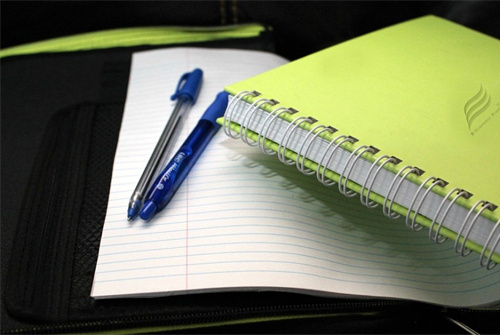高考英語(yǔ)作文開(kāi)頭好句子聚集80句

高考英語(yǔ)作文開(kāi)頭集錦
文章的開(kāi)頭一般來(lái)說(shuō)應(yīng)盡量做到開(kāi)門見(jiàn)山,用簡(jiǎn)單明白的敘述引出文章的話題,使讀者了解文章要談?wù)撌裁矗幌掠谝鹱x者的興趣。
作文常見(jiàn)的開(kāi)頭形式大致有以下幾種:
【第1句】:開(kāi)門見(jiàn)山,揭示主題
文章一開(kāi)頭,,就交待清楚文章的主題是什么。如“How I Spent My Vacation”(我怎樣度假)的開(kāi)頭可以寫(xiě)成:
I Spent my last vacation happily.
"Honesty"(談?wù)\實(shí))的開(kāi)頭可以寫(xiě)成:
Honesty is one of the best virtues.An honest man is always trusted and respected.On the contrary, one who tells lies is regarded as a "liar",and is looked upon by honest people.
【第2句】:交代人物、事情、時(shí)間或環(huán)境開(kāi)頭
在文章的開(kāi)頭,先把人物、事件和環(huán)境交待清楚。例如"A Trip to Jinshan" (去金山旅游)的'開(kāi)頭可以寫(xiě)成:
The day before yesterday my class went on a bus trip to Jinshan. The bus ride there took three hours. The long trip made us very tired, but the sight of the beautiful sea refreshed us.
【第3句】: 回憶性的開(kāi)頭
用回憶的方法來(lái)開(kāi)頭。例如"A Trip to the Taishan Mountain"(泰山游)的開(kāi)頭是:
I remember my first trip to the Taishan Mountain as if it were yesterday.
【第4句】:概括性的開(kāi)頭
即對(duì)要在文章中敘述的人或事先作一個(gè)概括性的介紹。如“The Happiness of Reading Books”(讀書(shū)的快樂(lè))的開(kāi)頭:
People often say that gold and silver are the most valuable things in the world. But I say that to read books is more valuable than anything else, because books give us knowledge and knowledge gives us power.
【第5句】:介紹環(huán)境式的開(kāi)頭
即開(kāi)頭利用自然景物或自然環(huán)境引出要介紹的事物。如“An Accident”(一場(chǎng)事故)的開(kāi)頭可以寫(xiě)成:
It was a rainy and windy morning. The sky was gloomy, the temperature was low, and the street was nearly empty. I was on my way back to school. Suddenly, a speeding car came round the corner.
【第6句】:交待寫(xiě)作目的的開(kāi)頭
在文章的一開(kāi)頭就交待寫(xiě)作目的,如通過(guò)文章要表?yè)P(yáng)誰(shuí),批評(píng)誰(shuí),或說(shuō)明一個(gè)什么問(wèn)題等。如 "Pollution Control" (控制污染)的開(kāi)頭:
In this article I shall draw your attention to the subject of pollution control.
【例文】:感恩節(jié)
Live with thankfulness
Do you know Thanksgiving Day? Do you know why human thank God?
Thanksgiving falls on the fourth Thursday of November, a different date every year. The President must proclaim that date as the official celebration.
Thanksgiving is a time for tradition and sharing. Even if they live far away, family members gather for a reunion at the house of an older relative. All give thanks together for the good things that they have.
In this spirit of sharing, civic groups and charitable organizations offer a traditional meal to those in need, particularly the homeless. On most tables throughout the United States, foods eaten at the first thanksgiving have become traditional.
What should we thank?
The thankful great universe provides the environment of existence for us and give us sunlight, air, water and everything in keeping with we existence of space, bring storm to let us accept to toughen for us, bring to us mysterious let us look for.
The thankful parents give us the life, make us feel the merriment of the human life, feel the genuine feeling of the human life, feel the comity of the human life, feel happiness of the human life, also feel hardships and pain and sufferings of the human life!
The thankful teacher works with diligence and without fatigue everyday of teach, give us knowledge ability, put on the wing which flies toward the ideal for us.
The thankful classmate and friend grows up road of, let I no longer standing alone in the itinerary of life; The with gratitude is frustrated and let us become in a time the failure stronger.
高考英語(yǔ)作文也經(jīng)常以書(shū)信的方式出現(xiàn),那么書(shū)信作文的開(kāi)頭是怎么寫(xiě)呢?
英語(yǔ)書(shū)信作文開(kāi)頭語(yǔ):
1) 常用開(kāi)頭語(yǔ)
a. How are you?
b. How are you getting on recently?
c. Many thanks for your last letter.
d. I’m very glad to have your letter dated May 1st.
2) 下面的書(shū)信作文開(kāi)頭語(yǔ)相當(dāng)于漢語(yǔ)正式文體中的“某某人敬啟”。
a. I beg to inform you that…
b. I beg to take this opportunity to inform you that…
c. I have the honor to address you that…
d. I write in a hurry to inform you that…
e. I have the pleasure to tell you that…
f. I’m very much delighted to inform you that…
3) 下面的書(shū)信作文開(kāi)頭語(yǔ)相當(dāng)于漢語(yǔ)正式問(wèn)題中的“接讀某月某日來(lái)信,一切知悉。”
a.I thank you very much for your letter of May 1st.
b.Your letter of May 1st has been received with thanks.
c. It gives me great pleasure to receive your kind better of May 1st.
d. In answer to your kind letter of May 1st…
e. I have received your kind letter of May 1st.
f. Your letter dated May 1st has been received.
4)“好久不見(jiàn)”的開(kāi)頭
a.How is it going? 最近怎么樣?
b.I am glad to receive your letter.很高興收到你的來(lái)信。
c.You asked me about( problem question 等),now let me give you some advice.你在來(lái)信中詢問(wèn)我....,現(xiàn)在,讓我給你一些建議。
d.It has been a long time since we met.我們很久沒(méi)見(jiàn)面了
【例文】
Dear Jim,
I‘d like to tell you that I‘ve been a senior high school student now.
At the sight of my new school,I found it so wonderful that I can‘t describe it with all my words.There are many trees,bright rooms,as well as a large playground.In addition,I‘ve met a lot of new friends,who are very friendly to me.Also,I‘ve taken my first English class in senior high school today.My teacher is not only knowledgeable but also a little interesting,which made me rather excited.
At the end of the day,I felt a little tired but more than happy,for I‘ve met so many interesting classmates.
Best wishes to you!
yours
署名
我很高興告訴你我現(xiàn)在已經(jīng)成為一名高中生了。
第一眼看到我的學(xué)校時(shí),我發(fā)現(xiàn)它是如此的美麗以至于用我所有的語(yǔ)言都無(wú)法描述它。學(xué)校有許多樹(shù),明亮的教室,和一個(gè)很大的操場(chǎng)。另外,我還遇見(jiàn)了許多新朋友,他們都對(duì)我很友好。還有,我今天上了在高中的第一堂英語(yǔ)課。我的老師不僅知識(shí)淵博而且還有一點(diǎn)有趣,這讓我非常興奮。
在這一天的最后,我感覺(jué)有一點(diǎn)兒累卻十分高興,因?yàn)槲矣鲆?jiàn)了這么多有趣的同學(xué)。
最好的祝愿!
高考英語(yǔ)作文開(kāi)頭技巧集錦
一篇文章通常可分為三個(gè)部分,即開(kāi)頭、正文和結(jié)尾。這三個(gè)部分安排是否得體,直接影響到文章的質(zhì)量。
文章的`開(kāi)頭一般來(lái)說(shuō)應(yīng)盡量做到開(kāi)門見(jiàn)山,用簡(jiǎn)單明白的敘述引出文章的話題,使讀者了解文章要談?wù)撌裁矗幌掠谝鹱x者的興趣。
作文常見(jiàn)的開(kāi)頭形式大致有以下幾種:
【第1句】:開(kāi)門見(jiàn)山,揭示主題
文章一開(kāi)頭,,就交待清楚文章的主題是什么。如How I Spent My Vacation的開(kāi)頭可以寫(xiě)成:
I Spent my last vacation happily.
Honesty的開(kāi)頭可以寫(xiě)成:
Honesty is one of the best virtues.An honest man is always trusted and respected.On the contrary, one who tells lies is regarded as a liar,and is looked upon by honest people.
【第2句】:交代人物、事情、時(shí)間或環(huán)境開(kāi)頭
在文章的開(kāi)頭,先把人物、事件和環(huán)境交待清楚。例如A Trip to Jinshan 的開(kāi)頭可以寫(xiě)成:
The day before yesterday my class went on a bus trip to Jinshan. The bus ride there took three hours. The long trip made us very tired, but the sight of the beautiful sea refreshed us.
【第3句】: 回憶性的開(kāi)頭
用回憶的方法來(lái)開(kāi)頭。例如A Trip to the Taishan Mountain的開(kāi)頭是:
2024年高考英語(yǔ)作文開(kāi)頭技巧匯總
文章的開(kāi)頭一般來(lái)說(shuō)應(yīng)盡量做到開(kāi)門見(jiàn)山,用簡(jiǎn)單明白的敘述引出文章的話題,使讀者了解文章要談?wù)撌裁矗幌掠谝鹱x者的興趣。
作文常見(jiàn)的.開(kāi)頭形式大致有以下幾種:
【第1句】:開(kāi)門見(jiàn)山,揭示主題
文章一開(kāi)頭,,就交待清楚文章的主題是什么。
例如“How I Spent My Vacation”(我怎樣度假)的開(kāi)頭可以寫(xiě)成:I Spent my last vacation happily.
"Honesty"(談?wù)\實(shí))的開(kāi)頭可以寫(xiě)成:
Honesty is one of the best virtues.An honest man is always trusted and respected.On the contrary, one who tells lies is regarded as a "liar",and is looked upon by honest people.
【第2句】:交代人物、事情、時(shí)間或環(huán)境開(kāi)頭
在文章的開(kāi)頭,先把人物、事件和環(huán)境交待清楚。
例如"A Trip to Jinshan" (去金山旅游)的開(kāi)頭可以寫(xiě)成:
The day before yesterday my class went on a bus trip to Jinshan. The bus ride there took three hours. The long trip made us very tired, but the sight of the beautiful sea refreshed us.
【第3句】: 回憶性的開(kāi)頭
用回憶的方法來(lái)開(kāi)頭。
例如"A Trip to the Taishan Mountain"(泰山游)的開(kāi)頭是:
I remember my first trip to the Taishan Mountain as if it were yesterday.
【第4句】:概括性的開(kāi)頭
即對(duì)要在文章中敘述的人或事先作一個(gè)概括性的介紹。
如“The Happiness of Reading Books”(讀書(shū)的快樂(lè))的開(kāi)頭:
People often say that gold and silver are the most valuable things in the world. But I say that to read books is more valuable than anything else, because books give us knowledge and knowledge gives us power.
【第5句】:介紹環(huán)境式的開(kāi)頭
即開(kāi)頭利用自然景物或自然環(huán)境引出要介紹的事物。
如“An Accident”(一場(chǎng)事故)的開(kāi)頭可以寫(xiě)成:
It was a rainy and windy morning. The sky was gloomy, the temperature was low, and the street was nearly empty. I was on my way back to school. Suddenly, a speeding car came round the corner.
【第6句】:交待寫(xiě)作目的的開(kāi)頭
在文章的一開(kāi)頭就交待寫(xiě)作目的,如通過(guò)文章要表?yè)P(yáng)誰(shuí),批評(píng)誰(shuí),或說(shuō)明一個(gè)什么問(wèn)題等。
如 "Pollution Control" (控制污染)的開(kāi)頭: In this article I shall draw your attention to the subject of pollution control.
高考英語(yǔ)作文開(kāi)頭集錦
文章的開(kāi)頭一般來(lái)說(shuō)應(yīng)盡量做到開(kāi)門見(jiàn)山,用簡(jiǎn)單明白的敘述引出文章的話題,使讀者了解文章要談?wù)撌裁矗幌掠谝鹱x者的興趣。
作文常見(jiàn)的開(kāi)頭形式大致有以下幾種:
【第1句】:開(kāi)門見(jiàn)山,揭示主題
文章一開(kāi)頭,,就交待清楚文章的主題是什么。如“How I Spent My Vacation”(我怎樣度假)的開(kāi)頭可以寫(xiě)成:
I Spent my last vacation happily.
"Honesty"(談?wù)\實(shí))的開(kāi)頭可以寫(xiě)成:
Honesty is one of the best virtues.An honest man is always trusted and respected.On the contrary, one who tells lies is regarded as a "liar",and is looked upon by honest people.
【第2句】:交代人物、事情、時(shí)間或環(huán)境開(kāi)頭
在文章的開(kāi)頭,先把人物、事件和環(huán)境交待清楚。例如"A Trip to Jinshan" (去金山旅游)的'開(kāi)頭可以寫(xiě)成:
The day before yesterday my class went on a bus trip to Jinshan. The bus ride there took three hours. The long trip made us very tired, but the sight of the beautiful sea refreshed us.
【第3句】: 回憶性的開(kāi)頭
用回憶的方法來(lái)開(kāi)頭。例如"A Trip to the Taishan Mountain"(泰山游)的開(kāi)頭是:
I remember my first trip to the Taishan Mountain as if it were yesterday.
【第4句】:概括性的開(kāi)頭
即對(duì)要在文章中敘述的人或事先作一個(gè)概括性的介紹。如“The Happiness of Reading Books”(讀書(shū)的快樂(lè))的開(kāi)頭:
People often say that gold and silver are the most valuable things in the world. But I say that to read books is more valuable than anything else, because books give us knowledge and knowledge gives us power.
【第5句】:介紹環(huán)境式的開(kāi)頭
即開(kāi)頭利用自然景物或自然環(huán)境引出要介紹的事物。如“An Accident”(一場(chǎng)事故)的開(kāi)頭可以寫(xiě)成:
It was a rainy and windy morning. The sky was gloomy, the temperature was low, and the street was nearly empty. I was on my way back to school. Suddenly, a speeding car came round the corner.
【第6句】:交待寫(xiě)作目的的開(kāi)頭
在文章的一開(kāi)頭就交待寫(xiě)作目的,如通過(guò)文章要表?yè)P(yáng)誰(shuí),批評(píng)誰(shuí),或說(shuō)明一個(gè)什么問(wèn)題等。如 "Pollution Control" (控制污染)的開(kāi)頭:
In this article I shall draw your attention to the subject of pollution control.
【例文】:感恩節(jié)
Live with thankfulness
Do you know Thanksgiving Day? Do you know why human thank God?
Thanksgiving falls on the fourth Thursday of November, a different date every year. The President must proclaim that date as the official celebration.
Thanksgiving is a time for tradition and sharing. Even if they live far away, family members gather for a reunion at the house of an older relative. All give thanks together for the good things that they have.
In this spirit of sharing, civic groups and charitable organizations offer a traditional meal to those in need, particularly the homeless. On most tables throughout the United States, foods eaten at the first thanksgiving have become traditional.
What should we thank?
The thankful great universe provides the environment of existence for us and give us sunlight, air, water and everything in keeping with we existence of space, bring storm to let us accept to toughen for us, bring to us mysterious let us look for.
The thankful parents give us the life, make us feel the merriment of the human life, feel the genuine feeling of the human life, feel the comity of the human life, feel happiness of the human life, also feel hardships and pain and sufferings of the human life!
The thankful teacher works with diligence and without fatigue everyday of teach, give us knowledge ability, put on the wing which flies toward the ideal for us.
The thankful classmate and friend grows up road of, let I no longer standing alone in the itinerary of life; The with gratitude is frustrated and let us become in a time the failure stronger.
高考英語(yǔ)作文也經(jīng)常以書(shū)信的方式出現(xiàn),那么書(shū)信作文的開(kāi)頭是怎么寫(xiě)呢?
英語(yǔ)書(shū)信作文開(kāi)頭語(yǔ):
1) 常用開(kāi)頭語(yǔ)
a. How are you?
b. How are you getting on recently?
c. Many thanks for your last letter.
d. I’m very glad to have your letter dated May 1st.
2) 下面的書(shū)信作文開(kāi)頭語(yǔ)相當(dāng)于漢語(yǔ)正式文體中的“某某人敬啟”。
a. I beg to inform you that…
b. I beg to take this opportunity to inform you that…
c. I have the honor to address you that…
d. I write in a hurry to inform you that…
e. I have the pleasure to tell you that…
f. I’m very much delighted to inform you that…
3) 下面的書(shū)信作文開(kāi)頭語(yǔ)相當(dāng)于漢語(yǔ)正式問(wèn)題中的“接讀某月某日來(lái)信,一切知悉。”
a.I thank you very much for your letter of May 1st.
b.Your letter of May 1st has been received with thanks.
c. It gives me great pleasure to receive your kind better of May 1st.
d. In answer to your kind letter of May 1st…
e. I have received your kind letter of May 1st.
f. Your letter dated May 1st has been received.
4)“好久不見(jiàn)”的開(kāi)頭
a.How is it going? 最近怎么樣?
b.I am glad to receive your letter.很高興收到你的來(lái)信。
c.You asked me about( problem question 等),now let me give you some advice.你在來(lái)信中詢問(wèn)我....,現(xiàn)在,讓我給你一些建議。
d.It has been a long time since we met.我們很久沒(méi)見(jiàn)面了
【例文】
Dear Jim,
I‘d like to tell you that I‘ve been a senior high school student now.
At the sight of my new school,I found it so wonderful that I can‘t describe it with all my words.There are many trees,bright rooms,as well as a large playground.In addition,I‘ve met a lot of new friends,who are very friendly to me.Also,I‘ve taken my first English class in senior high school today.My teacher is not only knowledgeable but also a little interesting,which made me rather excited.
At the end of the day,I felt a little tired but more than happy,for I‘ve met so many interesting classmates.
Best wishes to you!
yours
署名
我很高興告訴你我現(xiàn)在已經(jīng)成為一名高中生了。
第一眼看到我的學(xué)校時(shí),我發(fā)現(xiàn)它是如此的美麗以至于用我所有的語(yǔ)言都無(wú)法描述它。學(xué)校有許多樹(shù),明亮的教室,和一個(gè)很大的操場(chǎng)。另外,我還遇見(jiàn)了許多新朋友,他們都對(duì)我很友好。還有,我今天上了在高中的第一堂英語(yǔ)課。我的老師不僅知識(shí)淵博而且還有一點(diǎn)有趣,這讓我非常興奮。
在這一天的最后,我感覺(jué)有一點(diǎn)兒累卻十分高興,因?yàn)槲矣鲆?jiàn)了這么多有趣的同學(xué)。
最好的祝愿!









